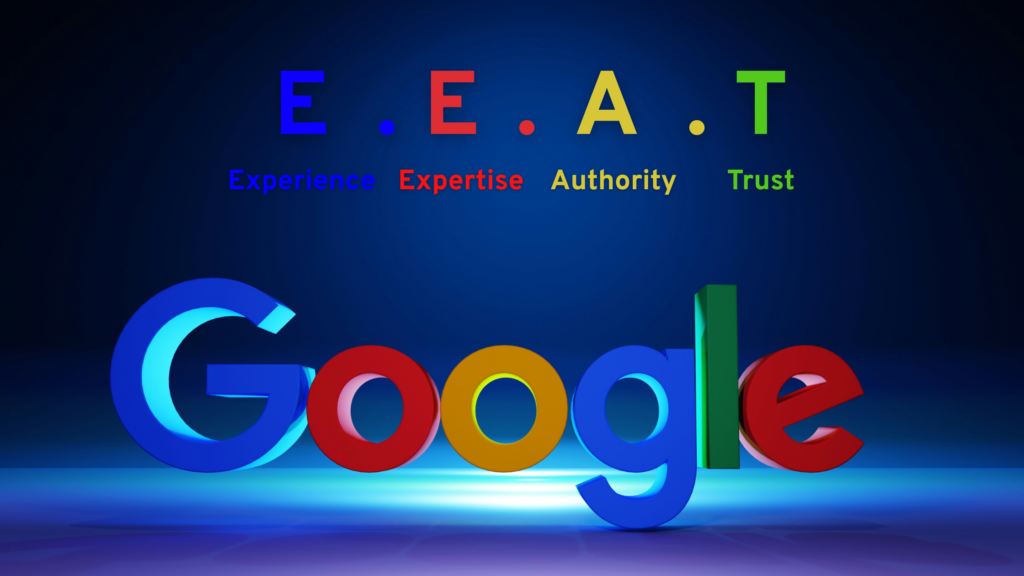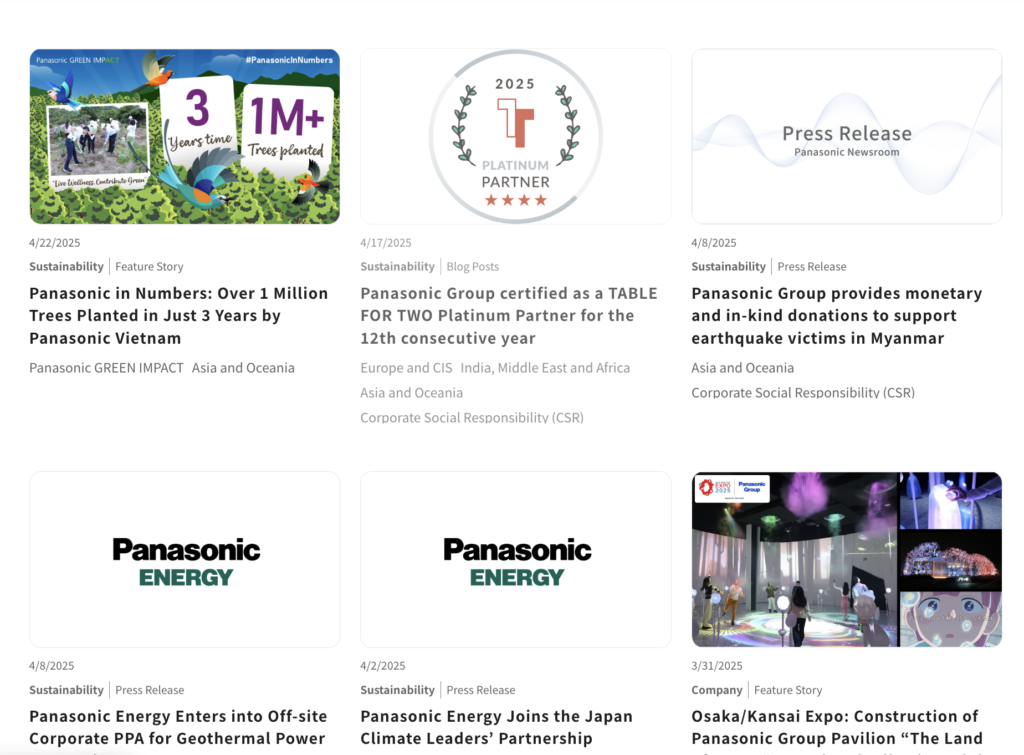Modern SEO goes far beyond just blog posts, keywords, and backlinks. Today’s search engine algorithms prioritize credibility, making it essential for B2B companies to establish a strong and trustworthy online presence. To improve visibility and rankings, businesses are encouraged to adopt the E-E-A-T (Experience, Expertise, Authoritativeness, and Trustworthiness) framework—demonstrating real value to both users and search engines.
Since technical accuracy, real-world experience, and strong reputation are already foundational to most businesses and featured in length on their website, B2B corporate have a card to play to become more visible than content players or competition. Let’s dive into what E-E-A-T means to B2B companies.
What is E-E-A-T?

Source: https://www.semrush.com/blog/eeat
E-E-A-T are a set of guidelines used by Google and other search engines. Those Search Quality Evaluator Guidelines are bake into the algorithm to help the Search Engine determine if content should rank. E-E-A-T guidelines help companies frame the “requirements” of search engines and come up with relevant actions to improve.
So what do the letter E-E-A-T mean?
- Experience refers to whether the content creator has relevant life or professional experience.
- Expertise means the creator has the necessary knowledge and skills in the subject matter.
- Authoritativeness reflects whether the creator is recognized as a reliable source within the industry.
- Trustworthiness considers whether the content is honest, accurate, and secure.
Why E-E-A-T for B2B businesses matters in SEO?
In B2B, purchasing decisions are rarely impulsive. Stakeholders require evidence of subject matter expertise, detailed specifications, and verified case studies before moving forward. Google’s algorithms increasingly surface pages that reflect these qualities. Google’s algorithm considers E-E-A-T as part of its Page Quality evaluation. While not a direct ranking factor, signals of E-E-A-T influence how Google surfaces content:
High-E-E-A-T content is more likely to appear in featured snippets, product carousels, or industry-related knowledge panels.
- Web domains demonstrating E-E-A-T are more often taken cited in A.I snippets (eg. Google Gemini, or ChatGPT) provided on top of search results and may result to reference links to your content.
Pages that showcase expert insight tend to perform better in competitive keywords, especially in niches like engineering, manufacturing, or IT services.
A machinery provider, for example, that includes detailed engineering diagrams, authored technical papers, references to patents, and customer case studies is more likely to rank for terms like “stainless steel bulk material handling system” than a competitor offering generic marketing copy.
In a study by SEMrush, websites with clear author attribution and regularly updated content performed better across B2B segments where accuracy and expertise matter most.
How to apply E-E-A-T for B2B businesses effectively?
1. Showcase your B2B company experience
Experience is a crucial factor in building trust and credibility in B2B marketing. To meet Google’s E-E-A-T standards, businesses should showcase their experience on their website through:
- Case Studies and Projects: Show past projects with clear results. This will demonstrate the company’s skill in managing complex challenges.
- Customer Testimonials: Display real customer reviews that demonstrate the company’s success and reliability. Formats for customer testimonials can vary, a popular use nowadays is the use of “self-filmed video testimonials”.
- Team Insights: Share real-world insights from team members, adding authenticity and depth to the content.
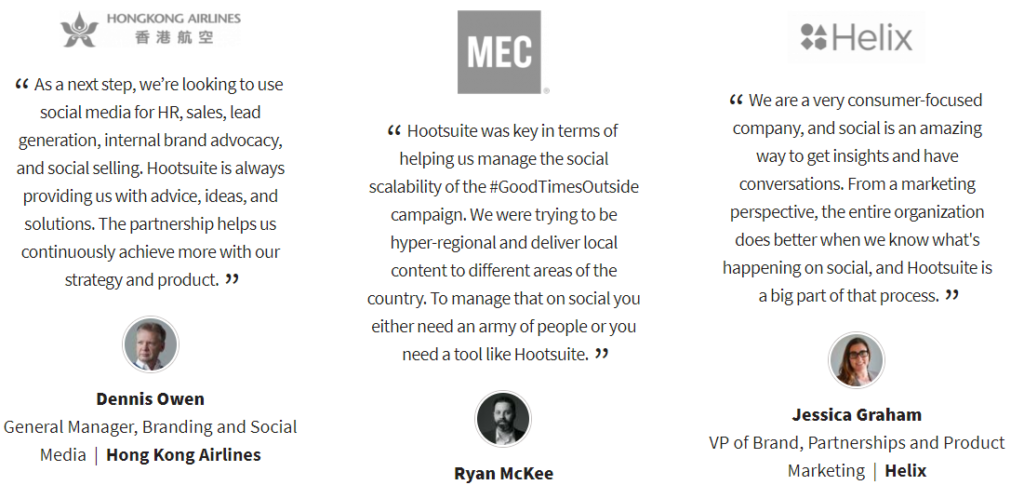
Hootsuite’s customer testimonial highlights real feedback to showcase success and build trust.
2. Showcasing expertise on the website
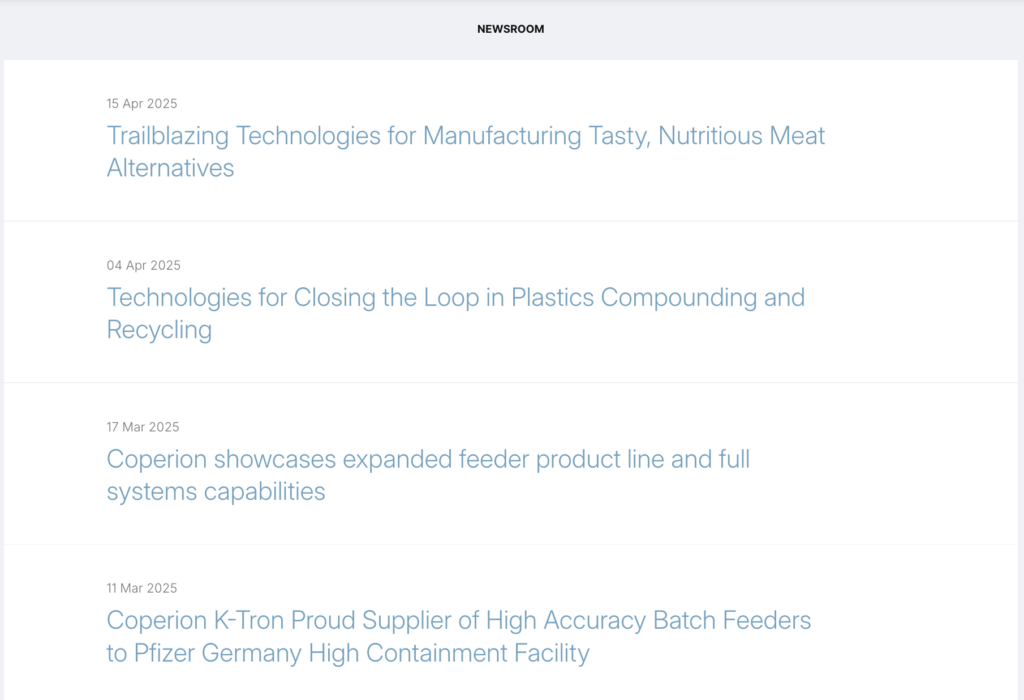
Expertise helps businesses establish themselves as authorities in their industry.
Ways to showcase expertise include:
- In-Depth Content: Publish well-researched articles, case studies, and data-driven content that demonstrate expertise. Add references patents the company may hold.
- Regular Updates: Keep content current by reflecting the latest industry trends and developments.
- Detailed Author Bios: Include bios with professional credentials and relevant experience to the conversation. This may seem unnatural for a number of B2B companies where employees usually take second place behind the brand, but showcasing your key industry experts will support visibility for the brand as a whole. Do not hesitate to link to existing scientific paper written by your subject matter experts if they are relevant to the topic presented.
3. Establish authoritativeness
To build authority, businesses can:
- Get links from reputable sources to signal trustworthiness to search engines.
- Guest Contributions: Write guest posts or contribute to industry blogs to expand reach and authority. This is a good way to put to use your subject matter experts and ask for incoming backlinks.
- Memberships: Feature your company as part of some industry association, consortium, Chamber of Commerce, or authorized partner (eg. Microsoft Partner Program, etc.)
- Certifications: Display the certifications achieved by your company in the relevant fields. Eg. Quality systems, environmental, IT security, project management, etc.
- Industry awards: Does your company take part in any competition or award? You can feature those achievements in your news section or footer.
- Company registration and licenses: Displaying your company registration id, a D-U-N-S number, and any license/compliance relevant to your business activity is a good way to achieve additional credibility.
4. Strengthening trustworthiness
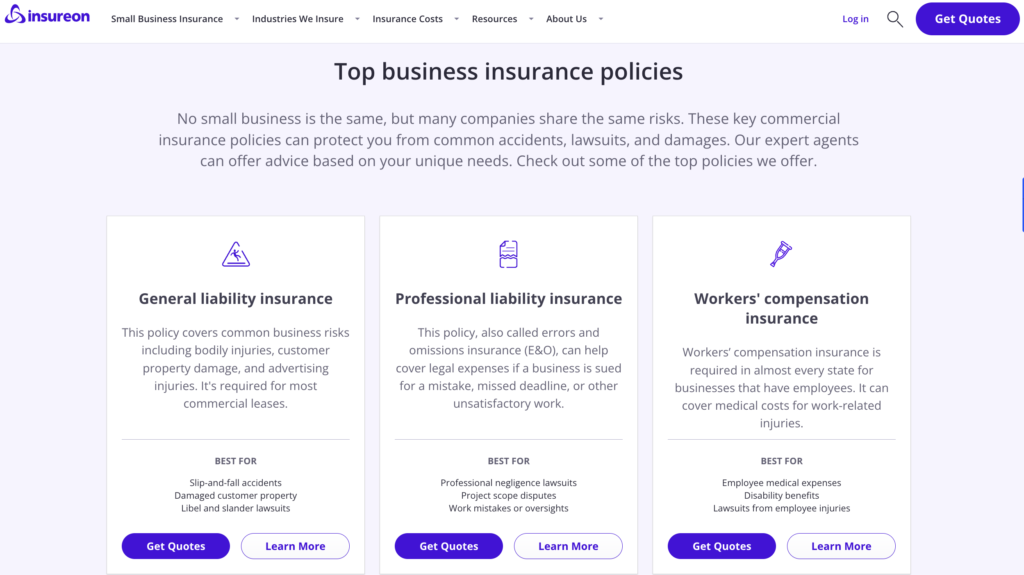
Insureon’s website builds trust. It does this with clear policy descriptions and coverage examples. This enhances transparency and user confidence.
Trust is vital for converting leads. Businesses can improve trust by:
- Key content: Clearly communicate business practices such as a “contact us page”, pricing, your leadership team with picture and biography.
- Physical contact information: Ensure your contact information is clear and up-to-date, link to Google map and collect reviews.
- Policies: Ensure you have up-to-date Terms of Service and Privacy policy that are easily accessible and relevant to the territories where you are rolling out business.
- Website Security: Enforce HTTPS protocol, ensure valid certificates and tight web security standards.
- Engagement: Actively respond to user feedback and demonstrate a commitment to improvement.
- Review in third-party platforms: Such platforms help boost credibility. This is especially important in the software space. Think Google, G2, Truspilot, etc.
Common pitfalls in E-E-A-T implementation
Here are some things you should avoid to avoid being penalized by E-E-A-T quality checks:
- Relying on anonymous or AI-generated content without human verification.
- Publishing marketing content without technical depth.
- Letting content get obsolete and ignoring (broken links, no SSL, outdated team pages). Tools like Ahref or SEMRush, or wordpress plugins can help you spot outdated content consistently with alerts and create lists of fixes for your team to implement.
- Overlooking schema markup, alt tags, and structured author data. Such markups reinforce trust signals for crawlers and should not be ignored.
Conclusion
E-E-A-T is more than an SEO checklist! It is a digital reflection of a company’s credibility and value in the B2B ecosystem. Companies that focus on reliable, well-researched content do better in search results. They also gain trust more quickly in long B2B sales cycles. For organizations operating in niche industrial markets, building E-E-A-T is a long-term investment that pays dividends in organic traffic, brand recognition, and lead quality.
For more insights on building digital authority in B2B, explore these articles:
- Overcoming Content Marketing Challenges for Manufacturers in APAC
- 3 Digital Marketing Trends in 2024 for B2B Businesses
- Integrated Marketing and Sales for Small Manufacturers
Ready to elevate your B2B manufacturing SEO strategy and succeed in the digital landscape?
